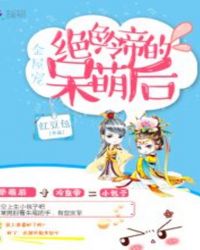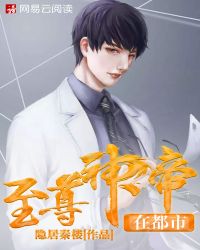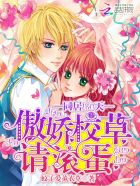LETTER 121
您可以在百度里搜索“The Works of Charles and Mary Lamb — Volume 5 艾草文学(www.321553.xyz)”查找最新章节!
LETTER 121
CHARLES LAMB TO DOROTHY WORDSWORTH
[Dated at end: June 2, 1804.]
Dear Miss Wordsworth, the task of letter-writing in my family falls to me; you are the organ of correspondence in yours, so I address you rather than your brother. We are all sensibly obliged to you for the little scraps (Arthur's Bower and his brethren) which you sent up; the bookseller has got them and paid Mrs. Fenwick for them. So while some are authors for fame, some for money, you have commenced author for charity. The least we can do, is to see your commissions fulfilled; accordingly I have booked this 2d June 1804 from the Waggon Inn in Cripplegate the watch and books which I got from your brother Richard, together with Purchas's Pilgrimage and Brown's Religio Medici which I desire your brother's acceptance of, with some pens, of which I observed no great frequency when I tarried at Grasmere. (I suppose you have got Coleridge's letter)—These things I have put up in a deal box directed to Mr. Wordsworth, Grasmere, near Ambleside, Kendal, by the Kendal waggon. At the same time I have sent off a parcel by C.'s desire to Mr. T. Hutchinson to the care of Mr. "T. Monkhouse, or T. Markhouse" (for C.'s writing is not very plain) Penrith, by the Penrith waggon this day; which I beg you to apprize them of, lest my direction fail. In your box, you will find a little parcel for Mrs. Coleridge, which she wants as soon as possible; also for yourselves the Cotton, Magnesia, bark and Oil, which come to £2. 3. 4. thus.
sh.
Thread and needles 17
Magnesia 8
bark 9. 8
Oil 8. 8
——
2. 3. 4
packing case 2. 6
——
2. 5.10
deduct a guinea I owe you,
which C. was to pay, 1. 1. -
but did not
——
leaves you indebted 1. 4.10
whereby you may see how punctual I am.
I conclude with our kindest remembrances to your brother and Mrs. W.
We hear, the young John is a Giant.
And should you see Charles Lloyd, pray forget to give my love to him.
Yours truly, D'r Miss W.
C. LAMB.
June 2, 1804.
I send you two little copies of verses by Mary L—b:—
DIALOGUE BETWEEN A MOTHER AND CHILD
Child.
(Sings)
"O Lady, lay your costly robes aside,
No longer may you glory in your pride."
Mother.
Wherefore to day art singing in mine ear
Sad songs were made so long ago, my dear?
This day I am to be a bride, you know.
Why sing sad songs were made so long ago?
Child.
"O Mother lay your costly robes aside,"
For you may never be another's bride:
That line I learnt not in the old sad song.
Mother.
I pray thee, pretty one, now hold thy tongue;
Play with the bride maids, and be glad, my boy,
For thou shall be a second father's joy.
Child.
One father fondled me upon his knee:
One father is enough alone for me.
Suggested by a print of 2 females after Leo[nardo da] Vinci, called
Prudence & Beauty, which hangs up in our ro[om].
O! that you could see the print!!
The Lady Blanch, regardless of all her lovers' fears,
To the Urseline Convent hastens, and long the Abbess hears:
"O Blanch, my child, repent thee of the courtly life ye lead."
Blanch looked on a rose-bud, and little seem'd to heed;
She looked on the rose-bud, she looked round, and thought
On all her heart had whisper'd, and all the Nun had taught.
"I am worshipped by lovers, and brightly shines my fame,
All Christendom resoundeth the noble Blanch's name;
Nor shall I quickly wither like the rose-bud from the tree,
My Queen-like graces shining when my beauty's gone from me.
But when the sculptur'd marble is raised o'er my head,
And the matchless Blanch lies lifeless among the noble dead,
This saintly Lady Abbess has made me justly fear.
It nothing will avail me that I were worshipt here."
I wish they may please you: we in these parts are not a little proud of them.
C. L.
["The little scraps." Professor Knight informed me that the scraps were not written but only copied by Miss Wordsworth. Arthur's Bower ran thus:—
Arthur's bower has broke his band,
He comes riding up the land,
The King of Scots with all his power
Cannot build up Arthur's bower.
"Your brother Richard"—Wordsworth's eldest brother.
"Purchas's Pilgrimage." Samuel Purchas (1575?-1626) was the author of Purchas His Pilgrimage, 1613; Purchas His Pilgrim, 1619; and Hakluytus Posthumus, or Purchas his Pilgrimes, 1625. This last is Purchas's best work, and is probably that which Lamb sent to Grasmere.
Mary Lamb's two poems, her earliest that we know, with the exception of
"Helen," were printed in the Works, 1818.] The Works of Charles and Mary Lamb — Volume 5




